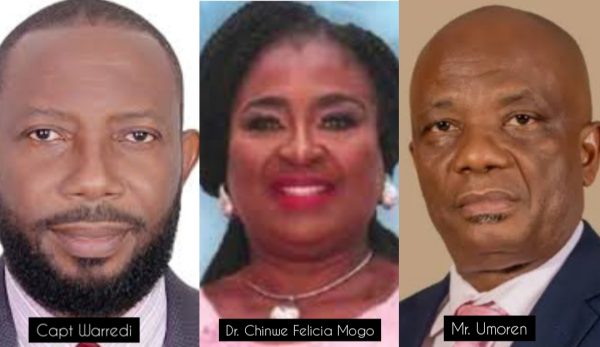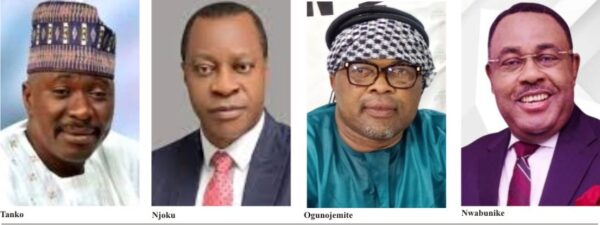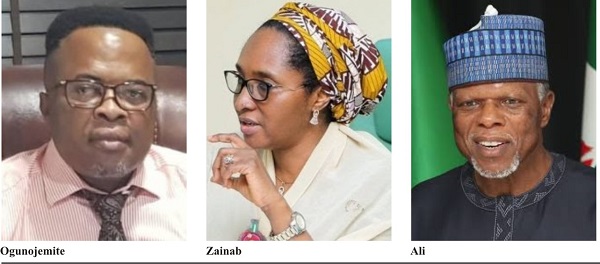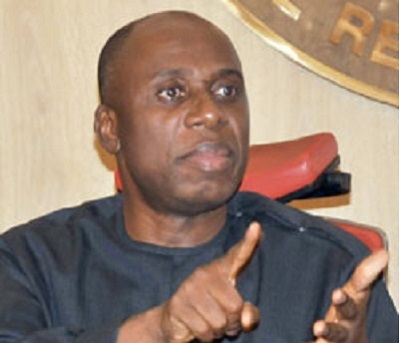How AFMESI Is Driving Marine And Blue Economy In Africa
In keeping with its relentless efforts to sensitize people, governments, organizations, groups and coastal communities in Africa towards achieving sustainable utilization of marine environment and its resources, the African Marine Environment Sustainability Initiative (AFMESI), from September 24th to 25th held its 4th Annual Symposium and Workshop in Lagos, Nigeria.
The two-day event was driven by the theme: “Achieving Blue Growth in a Changing Climate (Integrating the Coastal Communities)”. With the theme, the participants from different parts of Africa examined the progress and challenges of blue economy in Africa, with a focus on the continent’s coastal communities.
At the opening session, the President of AFMESI, Dr. Mrs. Felicia Mogo said the event was a gathering of minds united by a shared commitment to achieve sustainable blue growth in Africa, particularly in the context of a rapidly changing climate. She stated:
“As we continue to explore the vast opportunities that the blue economy presents, it is imperative that we also reflect on the direction we, as a community, are taking and the future targets we must set to realize our collective vision for Africa’s oceans and coastal communities.”
Dr. Mogo stressed that AFMESI was founded on a core mission to ensure the sustainable management and conservation of Africa’s marine and coastal environments while fostering economic growth and benefits, not just for businesses but also the millions of people whose livelihoods depends on these precious resources.
She recalled that over the years, AFMESI had championed numerous projects and initiatives in Nigeria and across Africa, aimed at protecting the continent’s marine ecosystems, empowering coastal communities, and advancing policy frameworks that support sustainable marine practices.
“As we look ahead, it is clear that our work is far from finished. Climate change, biodiversity loss, and unsustainable exploitation of marine resources continue to threaten the health of our oceans and the wellbeing of the communities that rely on them,” she stated.
The AFMESI Founder outlined the future targets of the NGO which, she said, were framed by its five-year strategic plan. These include: Engagements and Relationships, Science and Research, Advocacy and Implementation, Communication and Fundraising & Organizational Foundation.
She disclosed that AFMESI’s next phase of action as it navigates these challenges and pursue its vision of a resilient, sustainable and inclusive blue economy will be strengthening coastal community integration in the blue economy initiatives.
“Our first target is to deepen the integration of coastal communities into blue economy strategies. The communities that live and work by sea are the frontline defenders of our marine environments, and their involvement is crucial for the success of any sustainable initiative.
“AFMESI will expand its community-based projects, offering training, resources, and support to empower local populations to take an active role in managing their marine resources. This will include enhancing their capacity for sustainable fishing practices, ecotourism, and marine conservation efforts, ensuring they are not left behind in the global economy transition.”
Other targets that will be pursued under the five-year strategic plan include: promoting innovation and technology, expanding marine conservation efforts through public and private partnerships, addressing climate change and building ocean resilience, building capacity through education, training and policy advocacy. Others include, ensuring gender equality and youth empowerment in blue growth, and establishing financial mechanisms for sustainable blue economy development.
“We aim to attract investment in sustainable ocean industries, from eco-friendly aquaculture to renewable marine energy, and to ensure that these investments benefit the communities most in need. We will work with financial institutions, government agencies, private organizations, among others to achieve this goal,” she said.
Dr. Mogo stated that the 4th annual symposium/workshop would provide the participants the opportunities to learn, network and collaborate on shaping the future of Africa’s blue economy.
She remarked that the workshop on day two was aimed at building capacity of approximately 150 early and mid-career professionals in the marine and blue economy sectors of Africa and beyond.
The event, which was well-attended by relevant government officials, agencies and organizations from all over Africa physically and on zoom, featured paper presentations and panel discussions.
The key paper, which was also the theme of the symposium/workshop, was presented by Capt. Warredi Enisuoh, Director of Operations and Technical Services, Tantita Security Services Limited and former Director at Nigeria’s apex maritime regulatory agency NIMASA.
Presenting the paper, “Achieving Blue Growth in a Changing Climate – Integrating the coastal communities”, Warredi dwelt extensively on the activities that degrade coastal communities, especially Nigeria’s Niger Delta. These include: illegal petroleum products refineries, pipeline vandalism, oil spills etc.
He enumerated some major sources of greenhouse gas emissions, including power generation, deforestation, animal farming, manufacturing, ships, diesel-powered trains, aero planes, cement etc.
The effects of these emissions, he said, include: solar radiation, air and sea pollution, and global warming, noting that deserts are now beginning to experience rainfall as a result of global warming.
The guest speaker noted that the heavily industrialized nations are the greatest culprits of greenhouse gas emissions and consequent climate change, with the USA topping the list and Nigeria among the nations at the bottom of the ranking.
Capt. Warredi disclosed that his organization, Tantita Security Services, realizing the importance of carbon credits in providing solutions to the gross pollution in the Niger-Delta region, has begun mapping and other efforts aimed at helping the coastal communities gain from the carbon credit initiative. The aim is to preserve the forests and the entire marine environment.
He explained that one mature tree could absorb 80kg of carbon dioxide from the atmosphere in a year, stressing that several developed countries had adopted the carbon credit initiative to preserve their environment.
“Carbon credits are a transparent, measurable and results-based way for companies to support activities, such as protecting and restoring irrecoverable natural carbon sinks, like forests or marine ecosystems and scaling nascent carbon removal technology, which keeps global climate goals within reach.
He also pointed out that the Nigerian Ports Authority (NPA) can exchange carbon offset for funds that can be channeled into port automation. He, however, admonished prospective beneficiaries to approach the innovative concept with a sincere concern for the environment and not out of pecuniary interest.
In his presentation of a paper titled, “A Look at Blue Economy through Sustainable Practices” via zoom from Ghana, Prof. Kwasi Addo, Director, Institute for Environment and Sanitation Studies, University of Ghana, disclosed that Ghana has developed a Sustainable Ocean Plan (SOP) for its Marine and Blue economy which will be launched in November.
He stated that the SOP will guide public and private sector players on the sustenance of the oceans.
Prof. Addo who is a renowned expert in coastal processes, shoreline morphodynamics and coastal vulnerability assessment under sea level change scenarios, stressed that the SOP is designed to be a win for those living in the coastal areas.
The Secretary-General of Abuja MOU, Capt. Sunday Umoren, in his paper titled: “Collaboration and Partnership in Driving Blue Economy”, emphasized that there can be no successful running of blue economy without successful partnerships, collaboration, well-mapped out clusters and enforcement drive.
He maintained that partnerships and collaboration are the ingredients that will provide Africa’s marine and blue economy with a range of advisory, economic development, research services, informed policy regulation, sustainable management, and ensure rapid growth of Africa’s marine resources.
“Partnerships in a Blue Economy should be a win-win deal, what each stakeholder can bring to the table should be devoid of pitfalls and have a robust contribution to the country’s GDP,” he stressed.
The Abuja MOU Sec. Gen. opined that given proper regulatory framework and enforcement, Africa has all it takes to transform its challenges to employment generation, contribute to their country’s GDP and achieve Blue growth.
He reminded all that Blue Economy encompasses economic activities related to fisheries, shipping, ports and marine economy. “The Blue Economy creates jobs worldwide. The further a country moves from its coastline the higher the capital required for exploitation of the oceans,” he said.
The Minister of Marine and Blue Economy, Hon. Adegboyega Oyetola who declared the workshop open, encouraged the participants to share viable suggestions in order to address the numerous challenges in the blue economy.
Represented by Prof. Stephen Fakinlede, Oyetola reiterated the Ministry’s commitment to safe and sustainable blue economy, promising that the ministry will support AFMESI to achieve its noble objectives in the blue economy.
Other papers that were presented at the opening day of the symposium/workshop include: “Community Engagement and Empowerment in Coastal Management through Education and Capacity Building” by Rabia Yahia Meddah from Algeria, “Effective Ocean Governance for Sustainable Blue Growth” by Prof. Stephen Fakinlede, “Resilience planning using the tool of spatial planning with focus on climate change impacts on coastal and marine resources”, by Ibikunle Adewunmi and “Sustainable blue economy through the lens of innovation and technology,” by Prof. Denis Ahetor, director Centre for Coastal Management, University of Cape coast, Ghana.
Day two of the 4th annual event saw the presentation and discussion of “Sustainable Ocean Plan (SOP): In Line with The Ocean Action Coalition 2023 Strategy” by Cynthia Barzuna, “Welfare of African Seafarers” by Engr. Hakeem Oderinde, “Operationalization of the Blue Agenda in View of ACFTA” by Dr. Alban Igwe, and “Emerging Issues as they relate Blue Economy” by Nurudeen Mustapha Abba.
Financing Blue Economy was also one of the major issues discussed on the second day, with a paper presented by Dr. Alban Igwe.
The event ended with presentation of the communique and affirmation of commitment by participants and all stakeholders towards achieving sustainable blue growth in a changing climate in Africa.
The theme of this year’s annual symposium/workshop was fashioned to sensitize African governments towards achieving blue growth amidst climate change, and to integrate the coastal communities into the efforts. This is in line with the NGO’s quest to address the inadequate sensitivity, lack of political will and human infrastructure needed for equitable use and protection of marine environment in most African countries.
AMESI declared that it will continue to provide the platform for information exchange among experts on blue economy, with the view to harnessing and directing the knowledge gained to harnessing, protecting and improving the quality of oceans and marine environment in the African continent.







